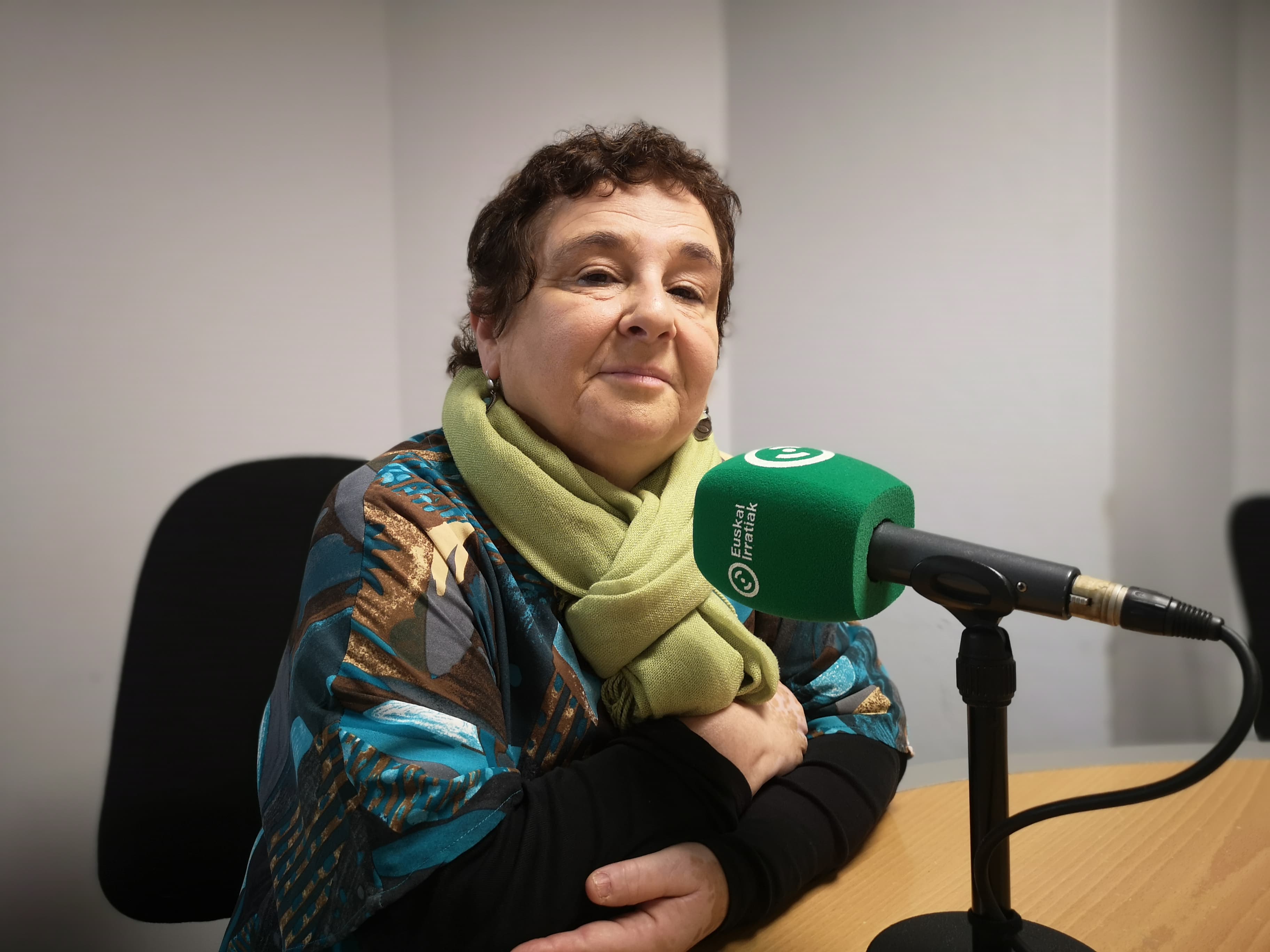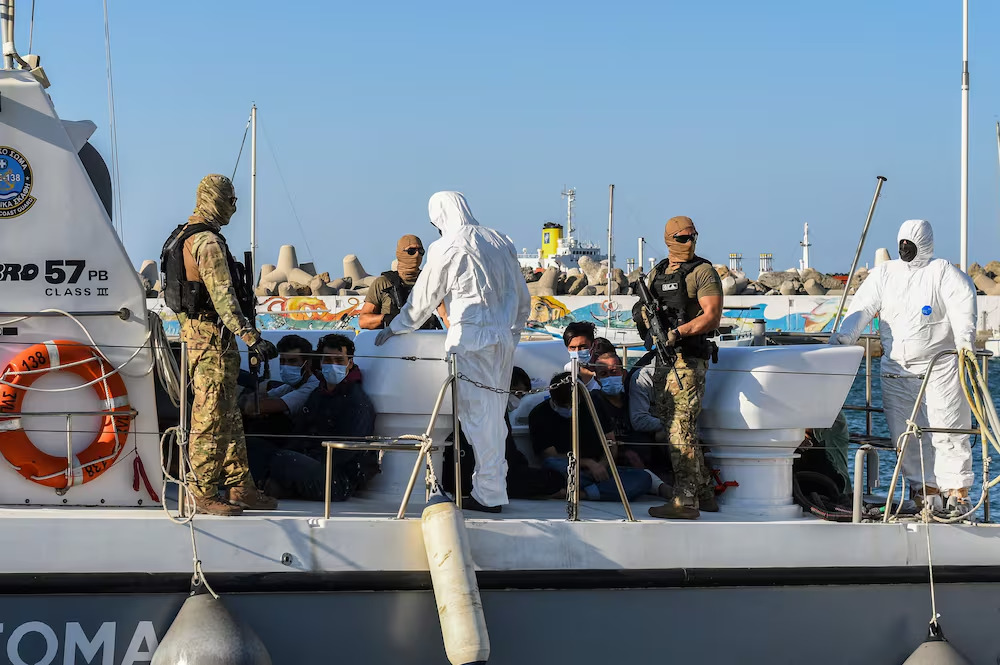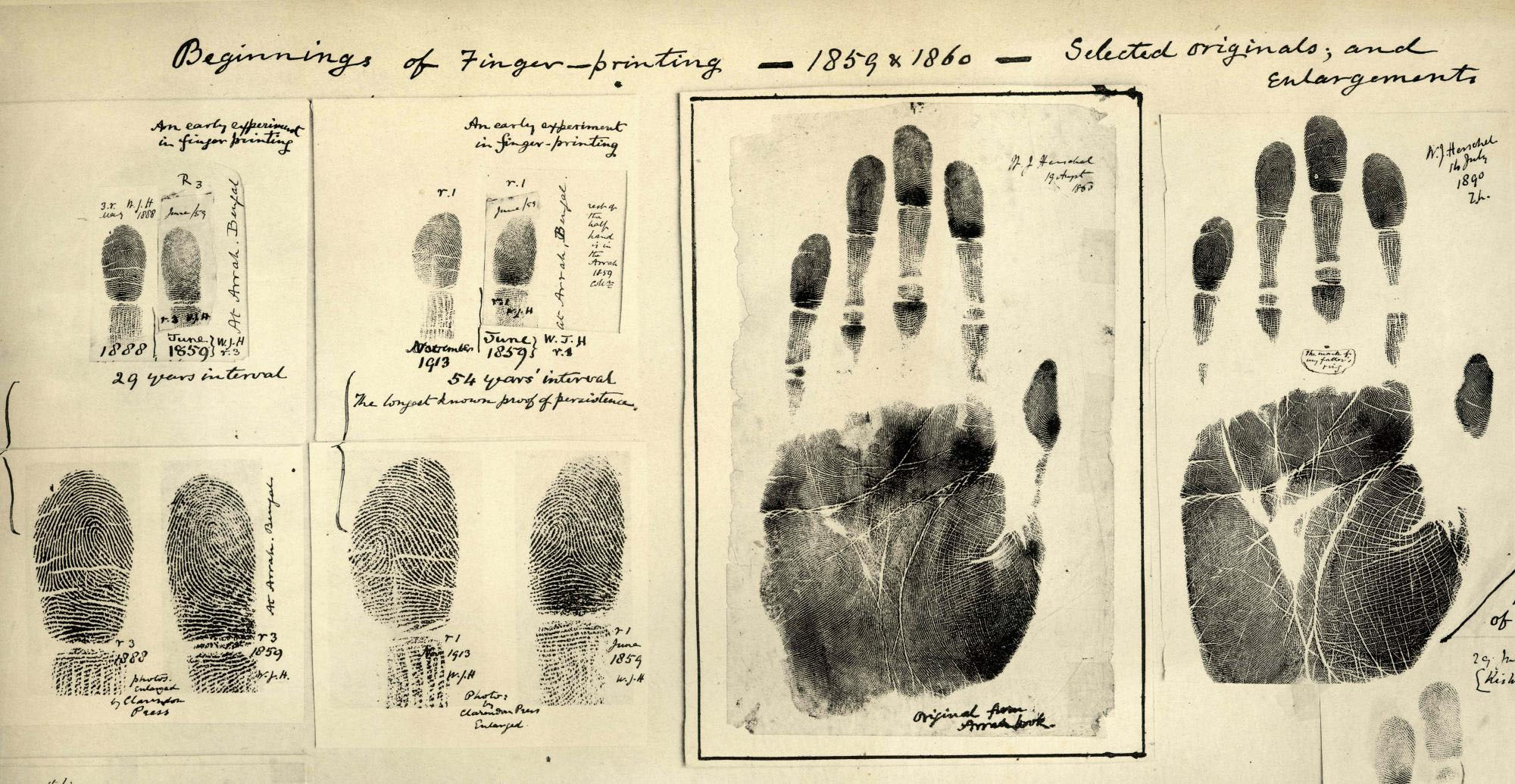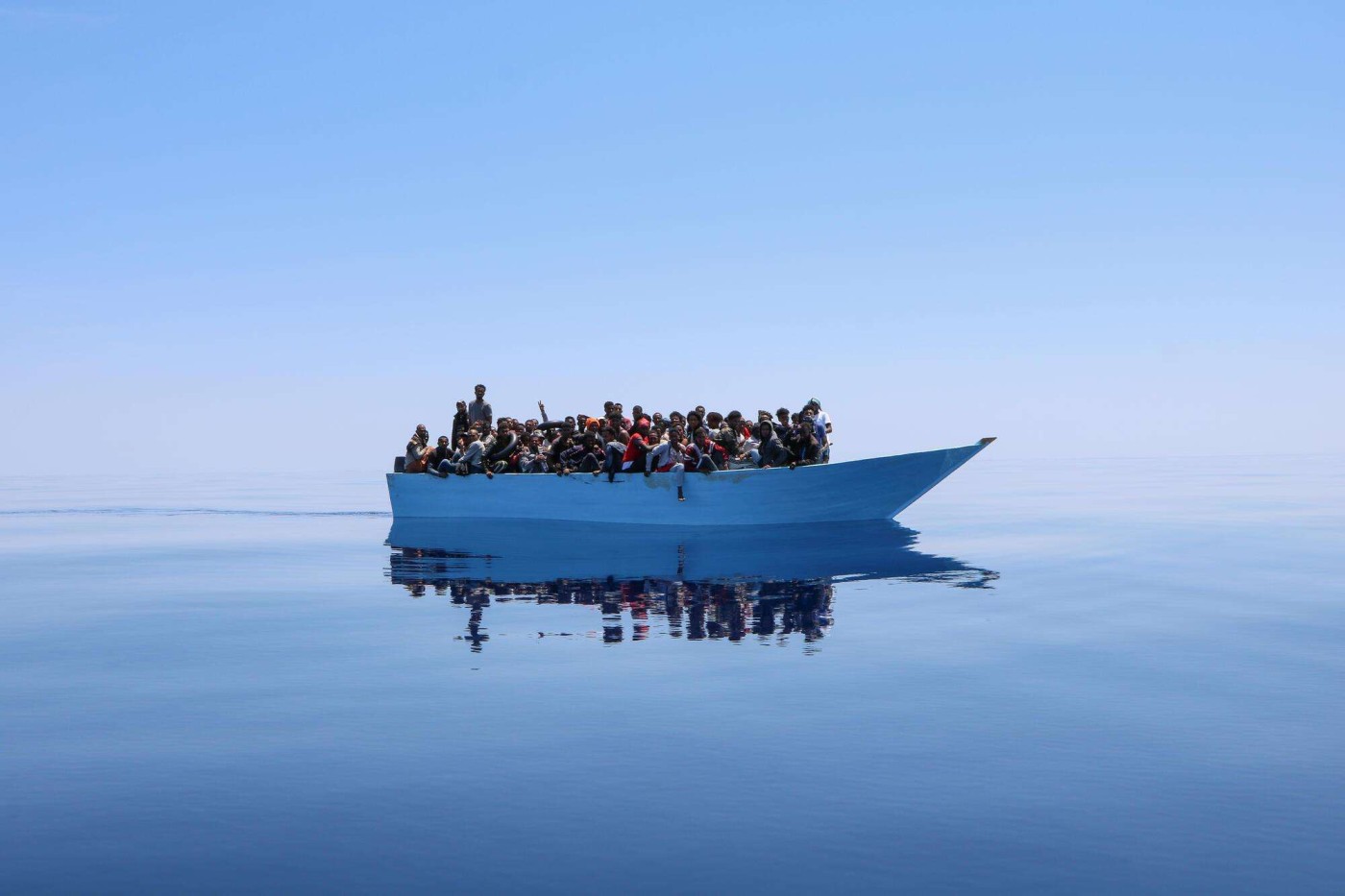"With more and more boats, the sea becomes safer"
- After a long wait, the ‘Aita Mari’ is heading for Lesbos (Greece) with humanitarian aid for refugees. The Spanish Government has authorised the crew to carry out the journey, but it has also prohibited them from rescuing people at sea. Iñigo Gutiérrez (Donostia-San Sebastián, 1964) is the crew member of the boat and it is clear that if someone is at risk at sea, their responsibility will be to rescue the crew.

What has brought you to ‘Aita Mari’?
It has been a long way. As well as a publicist, I'm a diving teacher, and I've always seen the sea as a source of life. I couldn't understand it becoming a grave. In my case, the picture of the Syrian boy named Aylan made me move. It was a painful image, and it pushed me to move from verbal activism to action. I found out about the NGO Humanitarian Marine Rescue through a monitor that buzzes and volunteered.
I was first mobilized on Christmas 2015 to go to the Greek island of Kios. There I saw that we live in a bubble, that the world is very big and complex, and that there are a lot of people suffering. These people suffer terrible conditions when landing, but things at sea are even worse. Finding boats full of people at sea in the middle of nowhere -- it's amazing. That's murder.
We decided that one way or another we would have to get a boat, because with more and more boats around, the sea becomes a safer place. And so we started with this madness of Aita Mari.
What you've undertaken is the ship's second mission, right?
That's right. We started the first mission in April, bringing humanitarian aid to Greece. The thing is, through this experience we saw that we had to make some improvements on the boat and we went back to the port.
We arrived in Pasaia at the end of July, and during the months of August and September we made the adaptations to Aita Mari. Then began the headaches that for weeks have kept us standing in the port.
You've been waiting for me to be allowed to sail. How have you experienced that wait?
It was a tense situation, because no one assured us that we were going to get permission. Frustrations have occurred in the last twelve months. The first preparation work of the vessel began on 1 June 2018 and was completed by 15 September. With the help of a lot of people, we did a great job so we could sail as soon as possible, but then we suffered an administrative cruise. They were waiting for us until January to receive a refusal. In these circumstances, we decided to sail to Lisbon and ask there for permission to travel to Greece. They gave us the yes and, although the Spanish Government tried to put obstacles, it could not stop us. Backed by this move, the Open Arms also succeeded in getting to the sea. However, we have been prevented for the second time, as we had to do repairs again.
In the end, you have been authorized to bring humanitarian aid to Greece, but with a clear ban: you cannot rescue.
Banning rescuing a ship is absolutely illegal and absurd. Suppose I can't rescue: What do I do if I find shipwrecks of a luxury transatlantic at sea? Will I tell you that Spain has banned me from rescuing? International law clearly states that people at risk at sea must be rescued from the waters. And it's over.
We have been forbidden to search, but we can navigate and if we encounter someone in danger we will immediately rescue him. No doubt.
Have you missed the support of social pressure while you waited?
There are many citizens who have fought for the ‘Aita Mari’, and also those who have allowed Zaporeak to distribute food in Lesbos or have chosen to give a dignified welcome to the refugees. They're a part of society, but that part is very small. In general, there is great passivity towards the subject. Imagine, someone asked me strangely. “Ah, but does the issue of refugees follow?”
At the Open Arms, difficult weeks were experienced by the refusal of European countries to land. Is that danger still there?
Fortunately, in this respect the situation is now better. In the central Mediterranean, things were very complicated during Salvini’s stay in the Italian Government, but the situation has changed dramatically since the disappearance of this character, and an agreement signed by four countries now guarantees the automatic landing of the rescued persons. That prevents us from repeating what happened with Open Arms, so that people will not be held prisoner again on the rescue boats.
What will you find in Lesbos?
The situation has worsened since our last mission. What are we going to find? A meat grinder. The European refugee camps in the twenty-first century are the detention centres that destroy people. And the situation has worsened, because the influx of people from Turkey has increased. The Turkish Government is playing the dirty game of opening and closing the source of the refugees, and it is difficult to know what is going to come, but it is very badly painted.
Is Basque society aware of what is happening there?
No. Society should look at it with its own eyes to understand what that is. Only in this way would we see how well we live here and the damage we do in other places to be able to live like this.
Fortunately, there is a certain awareness in Euskal Herria, and there are towns such as Oñati, where, with the support of the citizens, a reception centre for refugees has been built. Or different agents who carry out work of reception and social insertion. For me, those are the real heroes who are fighting daily and secretly for the reinsertion of the people who come here.
The ‘Aita Mari’ will reach Lesbos in early November. When will he return to Euskal Herria?
The crew members will be back in a month and a half, but the ‘Aita Mari’ will continue in the Mediterranean, and I sincerely hope never to return, because its aim is to help people who are at risk at sea.
"Segurtasun gehiago, inmigrazio gutxiago". Bruno Retailleau barne ministro frantsesa argi mintzatu da, kargua hartu berritan. Etorkinen gaineko kontrola azkartu nahi du Michel Barnier lehen ministro eskuindar-kontserbadorearen gobernuak, eta jada Retailleauk aitzinatu... [+]
Europar Batasunean berriki onartu den Migrazio Itunak, asko zaildu dizkie gauzak euren herrialdetik ihesi doazen eta asiloa eskatzen duten pertsonei. Eskuin muturraren tesiak ogi tartean irentsita, migratzaileentzako kontrol neurri zorrotzagoak onartu dituzte Estrasburgon,... [+]
Migratzaileen kopurua anitz emendatu da Irun eta Hendaia arteko pasabidean. Irungo Harrera Sareak ohartarazi duenez, otsailean 600 pertsona lagundu dituzte, iaz, urte osoan 2.700 izan zirelarik. Iragan urtarrilean, 2.700 etorkin heldu dira Kanariar Uharteetara, egunero 80... [+]






















